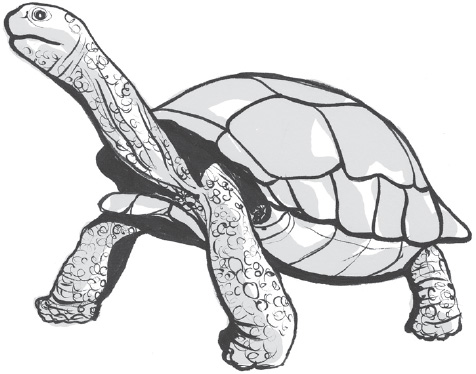Why do we get old?
The most common understanding of why we get old is that our bodies’ repair mechanisms stop working as well as they did when we were younger.
Actually, this is more of a description of how we get old. Nobody really knows why we get old. In fact, not all animals age, so it may be possible for humans to avoid this fate as well someday.
Various theories in biology concern aging. Some people think that our bodies can soak up only so much damage, such as cell damage and environmental stresses, before the repair mechanisms that mend this damage are exhausted and stop working. Another theory concerns the ways our cells avoid turning into cancer cells: It may be that the same mechanism that helps a young person avoid getting cancer (making cells kill themselves before they become dangerous) eventually causes the same person to get old. This is called the antagonistic pleiotropy theory. A third theory, called the disposable soma theory, suggests that our bodies exist only to push our reproductive cells into the next generation. It doesn’t matter if the messenger (or, in biological jargon, the soma) gets damaged or killed, as long as he or she delivers the message before dying. In other words, our reproductive cells are important, but we are disposable.
The aforementioned theories paint a bleak picture, as they suggest that aging has no ultimate purpose, and that we get old because it is impossible not to get old. But some animals don’t seem to get old. The Aldabra giant tortoise can live to at least 255 years, and no one knows how much longer it might survive without any external threats. The same is true of the rougheye rockfish (its oldest known specimen lived up to 205 years), and even the humble lobster. The quahog clam is another trouper— it can live for over 400 years! The oldest animal ever discovered is a quahog clam nicknamed Ming, which was over 405 years old when it was fished out of the ocean near Iceland.

Aldabra giant tortoise
To take into account the ability of some animals to apparently live without aging, some biologists have suggested that human aging does have a function, and that we have actually evolved to grow old. Age and death might help clear the way for our descendants to be more genetically successful, or it might be that aging poses such a survival challenge that it acts as a kind of test, weeding out weaker individuals so that only the strongest survive.
If we really have evolved to grow old, then the aging process must be under the control of our genes, which in turn means we can do something about it. Advances in genetic science and the ability to modify our genes through genetic engineering might make it possible for future humans to stay young forever—or at least to reverse the visible effects of aging.
